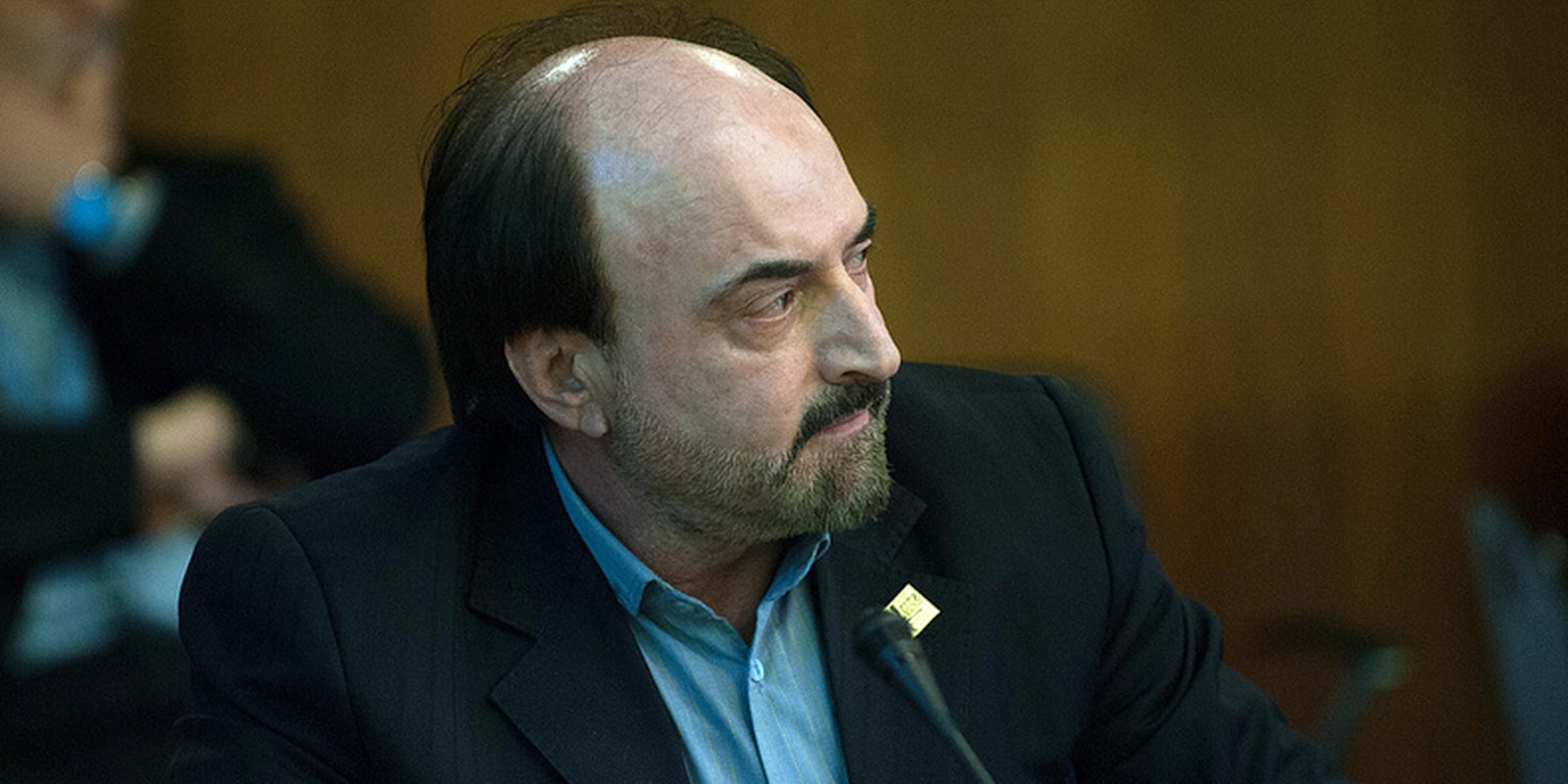Iran has admitted it throttled the speed of Internet connections in the country as a security measure to “preserve calm” in the lead-up to this month’s presidential election.
The minister for communications and information technology, Mohammad Hassan Nami, said in an interview the measure was intended to stop “foreigners trying to disrupt the election process,” Radio Free Europe/Radio Liberty reported. Nami noted a number of bodies were involved in the traffic slowdown, including his own ministry.
Though Iran has a history of throttling Internet speeds and ramping up Web censorship on certain sensitive occasions, it doesn’t usually admit to doing so. A paper by researcher Collin Anderson shows a correlation between throttling and political events in Iran.
Radio Free Europe/Radio Liberty cited reports from Iranian media and Internet users about slower speeds and certain services like Gmail and Skype being blocked in the last few weeks, along with increased censorship in the lead up to the June 14 vote. The country also reportedly blocked workarounds Iranians use to beat censorship and website blocks.
Internet activists called on President-elect Hassan Rohani to bolster connection speeds and ensure the country’s Internet is overseen by elected officials. They cited his campaign’s use of social networks as evidence he is “aware of their importance in today’s life.”
“The situation of the Internet in Iran is not appropriate at all,” activists wrote in an open letter shortly after the vote. “The Internet is slow and the filtering prevents people from accessing information.”
Iran has been working on a closed Internet for some time, in an effort to create a network free from pornography, political dissent, and blasphemy. Among that network’s facets is a censored video-sharing network.
However, Nami denied in his interview Iran plans to limit broader Internet access via a national network. “It’s not at all the case,” he said. “We are after becoming a hub in the communications field.” His comments back up similar remarks by other Iranian officials from last year.
Photo by itupictures/Flickr


